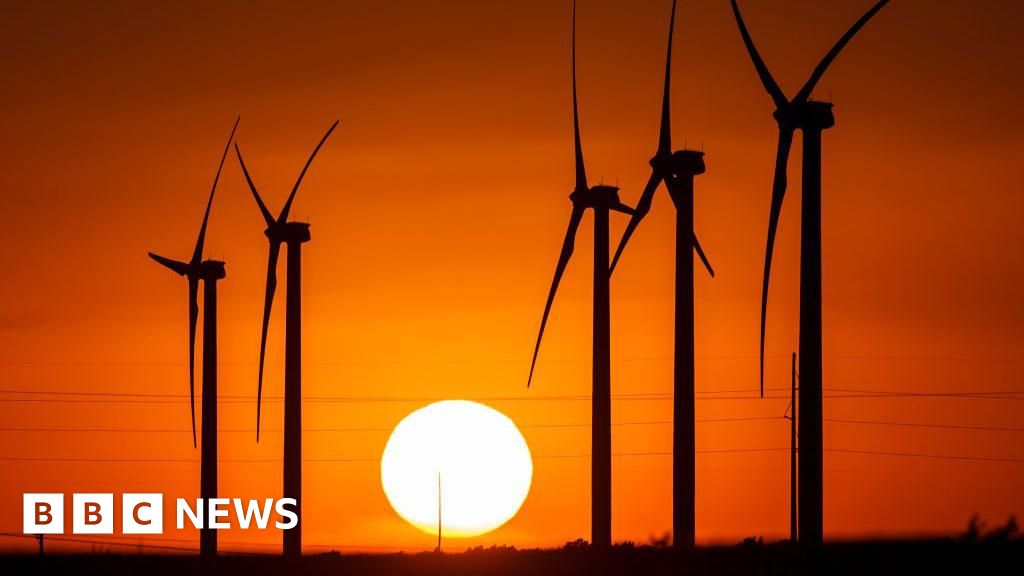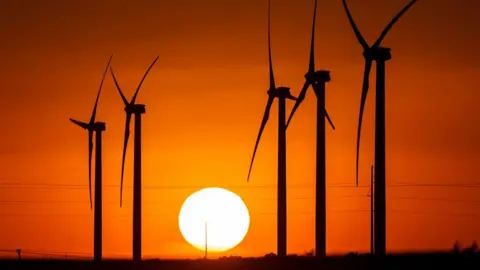
BP Plans Major Strategy Shift Amid Falling Profits
By Tom Espiner, Business Reporter

Photo Credit: Getty Images
Oil titan BP has announced plans for a significant transformation of its business strategy, following a steep decline in profits last year. The company is anticipated to reveal its updated plans later this month, which may involve a reduction in renewable energy initiatives and an increase in oil and gas extraction—mirroring recent steps taken by competitors like Shell and Equinor.
In 2024, BP reported a net income of $8.9 billion (£7.2 billion), a sharp drop from $13.8 billion the previous year. The company attributed this downturn to declining oil and gas prices, as well as reduced profitability from its refining operations.
Five years ago, BP aimed to achieve a renewable energy generation capacity of 50 gigawatts by 2030. However, this target is expected to be revised significantly in a major strategic shift scheduled for February 26. The oil giant has already begun to pull back from its renewable projects; in December, it formed a joint venture with the Japanese firm Jera, offloading the majority of its offshore wind assets and distancing them from the company’s core fossil fuel operations. Reports indicate that BP may cut its previous $10 billion investment commitment in renewables by as much as 50% by 2030, and it halted new wind projects last June.
Activist investor Elliott Management has acquired a stake in BP, advocating for increased investments in oil and gas, which has generated speculation about potential board changes. AJ Bell analyst Russ Mould commented that BP’s sharp profit decline provides ample opportunity for hedge fund Elliott to exert influence, as BP has done little to reassure shareholders that its current strategy is effective. Mould emphasized the need for BP to develop a clear and credible plan to regain control over its future.
Profit Motives in Energy Production
The relationship between fossil fuel emissions and global warming is evident; nonetheless, many oil and gas companies are moving to enhance production. Nick Butler, former head of strategy at BP, noted that major oil firms will only invest in renewable energy when they anticipate substantial profits. Recently, Norwegian energy company Equinor announced plans to reduce its renewable energy investments by half over the next two years while increasing oil and gas output, with CEO Anders Opedal citing insufficient profitability in the renewable sector.
Shell also withdrew from new offshore wind investments late last year, highlighting the industry’s trepidation regarding ongoing commitment to renewable projects.
Withdrawal from Climate Agreements
Former US President Donald Trump reiterated his endorsement of fossil fuels and expressed intentions to withdraw from the Paris climate agreement—an essential global effort to combat rising temperatures. His administration’s focus on oil and gas exploration signaled a resurgence in fossil fuel investments.
A report from Global Witness revealed that BP directed nearly £9 billion towards oil and gas in the last year, in stark contrast to only £1.3 billion for renewables and low-carbon energy initiatives. Lela Stanley, head of fossil fuels investigations at Global Witness, criticized BP’s decision to double down on its oil and gas investments amidst a climate crisis exacerbated by fossil fuel combustion.
Elena Polisano, heading Greenpeace’s climate justice campaign, pointed out the increasing pressure on governmental bodies to allocate profits from the fossil fuel sector toward recovery funds for extreme weather events, a practice already underway in states like Vermont and New York. Polisano underscored that major oil companies, including BP, play a pivotal role in driving climate change and called for accountability by enforcing penalties on polluters.









